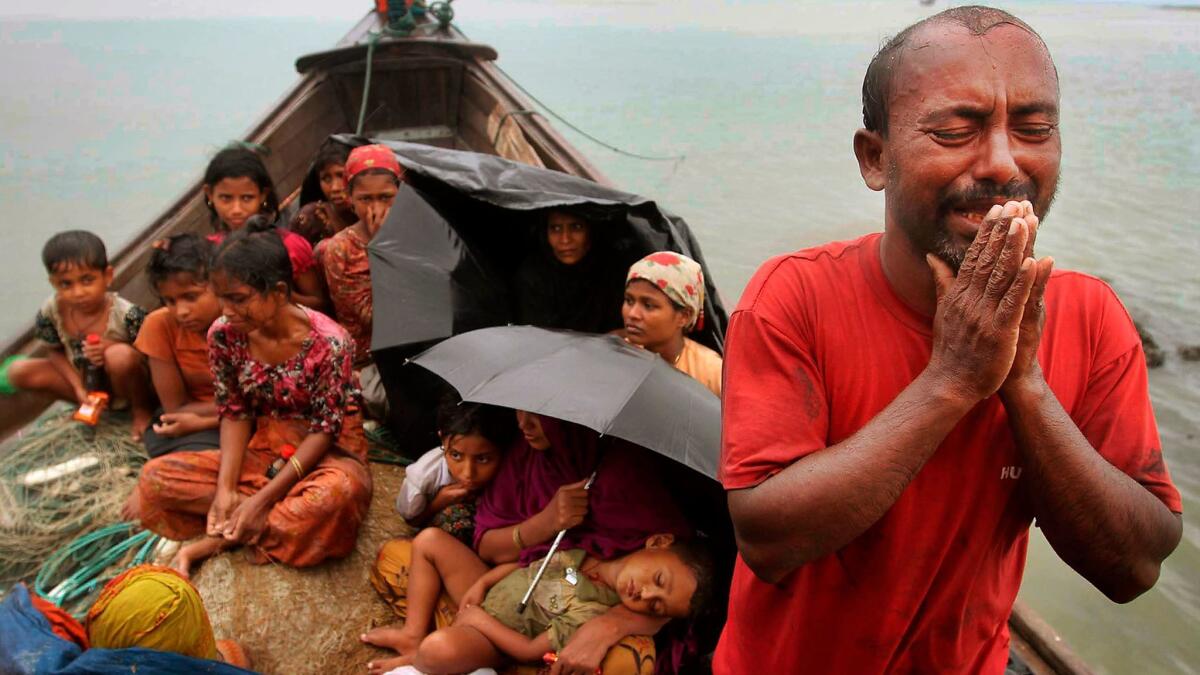Editorial: When will Myanmar stop persecuting the Rohingya?

A little more than a year ago, Nobel laureate Aung San Suu Kyi and her National League for Democracy party were swept to a landmark election victory in Myanmar. As the country has progressed down the path toward full-fledged democracy, however, it has not made equal strides on human rights. Witness how Suu Kyi’s government has completely locked down an impoverished and strife-ridden portion of the country — home to many of the country’s Rohingya Muslim population, one of the world’s most persecuted groups — in the name of national security.
The lockdown occurred after attacks on three border posts in the Maungdaw township of Myanmar’s Rakhine state left nine police officers dead early last month. According to a statement from the Ministry of Information, interrogations of two attackers led officials to conclude that the attacks were part of an elaborate Islamist terrorist plot to take over that part of Rakhine state. Human rights groups and news media have not been able to verify any part of that account.
The Myanmar government has every right to respond to an attack on its police force. But what human rights groups and U.N. officials have decried is Myanmar’s scorched-earth tactics. Since the lockdown, according to Human Rights Watch, at least 100 people have been killed and 1,250 homes and other structures have been burned. Some groups say the military burned the houses. The military says Rohingya militants have burned their own villages. There also have been reports of women alleging they had been raped by soldiers. (The government denies those allegations.)
Hundreds have been arrested, humanitarian assistance in Maungdaw township has been curtailed, and thousands have fled their destroyed villages, many crossing the northern border into Bangladesh. Officials of the U.N.’s World Food Program say they were allowed to distribute food for two days earlier this month, but officials still worry about future access. The recipients of aid in this rural area are impoverished Rohingya Muslims who, by virtue of Myanmar’s longstanding refusal to allow them citizenship, are restricted in their travel and largely rely on food aid to survive.
The United Nations special rapporteur on human rights in Myanmar and Samantha Power, the U.S. ambassador to the United Nations, have called for international observers to be allowed to investigate the allegations of abuse and violence and for humanitarian aid to resume.
Even as Myanmar has transitioned over the years from a military government to a democratic one, it has yet to transition out of its state-sanctioned discrimination against the Rohingya Muslim minority. This period of violence is another indication of the government’s disgraceful treatment of the Rohingya and a disappointing sign that Suu Kyi cares little about changing that situation. Former U.N. Secretary General Kofi Annan, whom Suu Kyi asked last summer to head a commission on the problems in Rakhine state, issued a statement noting that “recent events have reinforced the urgency of tackling these challenges.” He’s got that right. Perhaps he can convince Suu Kyi to allow relief agencies and journalists back into the township, and to stop ignoring allegations of abuse by the military.
Follow the Opinion section on Twitter @latimesopinion or Facebook
More to Read
A cure for the common opinion
Get thought-provoking perspectives with our weekly newsletter.
You may occasionally receive promotional content from the Los Angeles Times.










